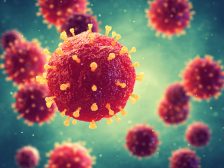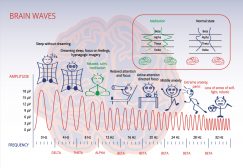Definition
noun
A structural level wherein several proteins (or polypeptide subunits) interact through non-covalent bonds to form one functional protein complex.
Supplement
In proteins, there are four recognized levels of protein structure: primary structure, secondary structure, tertiary structure, and quaternary structure.
A quaternary structure of a protein refers to the assembly of multiple folded protein molecules in a multi-subunit complex.
See also: protein structure
Dictionary > Quaternary structure
You will also like...

Control of Body Movement
Some of the body movements can be controlled at will, others cannot. The body has a motor program, which is the pattern ..

Biological Viruses
Viruses possess both living and non-living characteristics. This unique feature distinguishes them from other organisms...

Sleep and Dreams – Neurology
While learning and intelligence are associated with the functions of a conscious mind, sleep and dreams are activities o..

Plant Cell Defense
Plants protect themselves by releasing hydrogen peroxide to fight against fungal invasion. Another way is by secreting c..

Early Mammals on Earth
The Earth's ecosphere was rapidly changing and throwing up a wide range of ecological niches that new adaptive organisms..

Growth Patterns
This tutorial describes the sigmoid curve, annual plant growth, tree growth, human growth, and insect growth as the grow..

